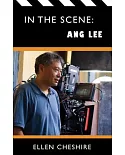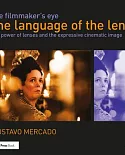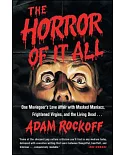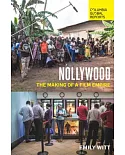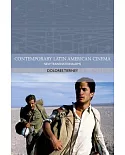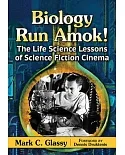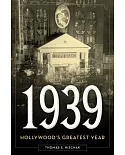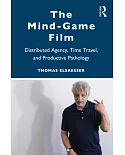When he was summoned before the House Committee on Un-American Activities in 1951, Abraham Lincoln Polonsky (1911-1999) was labeled "a very dangerous citizen" by Harold Velde, a congressman
from Illinois. Lawyer, educator, novelist, labor organizer, radio and television scriptwriter, film director and screenwriter, wartime intelligence operative, and full-time radical romantic,
Polonsky was blacklisted in Hollywood for refusing to be an informer. The New York Times called his blacklisting the single greatest loss to American film during the McCarthy era, and
his expressed admirers include Steven Spielberg, Martin Scorsese, Sidney Lumet, Warren Beatty, and Harry Belafonte. In this first critical and cultural biography of Abraham Polonsky, Paul Buhle
and Dave Wagner present both an accomplished consideration of a remarkable survivor of America's cultural cold war and a superb study of the Hollywood left.
The Bronx-born son of immigrant parents, Polonsky--in the few years after the end of World War II and just before the blacklist--had one of the most distinguished careers in Hollywood. He wrote
two films that established John Garfield's postwar persona, Body and Soul (1947), still the standard for boxing films and the model for such movies as Raging Bull and Pulp
Fiction; and Force of Evil (1948), the great noir drama that he also directed. Once blacklisted, Polonsky quit working under his own name, yet he proved to be one of television's
most talented writers. Later in life he became the most acerbic critic of the Hollywood blacklist's legacy while writing and directing films such as Tell Them Willie Boy Is Here
(1970).
A Very Dangerous Citizen goes beyond biography to help us understand the relationship between art and politics in American culture and to uncover the effects of U.S. anticommunism and
anti-Semitism. Rich in anecdote and in analysis, it provides an informative and entertaining portrait of one of the most intriguing personalities of twentieth-century American culture. When he
was summoned before the House Committee on Un-American Activities in 1951, Abraham Lincoln Polonsky (1911-1999) was labeled "a very dangerous citizen" by Harold Velde, a congressman from
Illinois. Lawyer, educator, novelist, labor organizer, radio and television scriptwriter, film director and screenwriter, wartime intelligence operative, and full-time radical romantic,
Polonsky was blacklisted in Hollywood for refusing to be an informer. The New York Times called his blacklisting the single greatest loss to American film during the McCarthy era, and
his expressed admirers include Steven Spielberg, Martin Scorsese, Sidney Lumet, Warren Beatty, and Harry Belafonte. In this first critical and cultural biography of Abraham Polonsky, Paul Buhle
and Dave Wagner present both an accomplished consideration of a remarkable survivor of America's cultural cold war and a superb study of the Hollywood left.
The Bronx-born son of immigrant parents, Polonsky--in the few years after the end of World War II and just before the blacklist--had one of the most distinguished careers in Hollywood. He wrote
two films that established John Garfield's postwar persona, Body and Soul (1947), still the standard for boxing films and the model for such movies as Raging Bull and Pulp
Fiction; and Force of Evil (1948), the great noir drama that he also directed. Once blacklisted, Polonsky quit working under his own name, yet he proved to be one of television's
most talented writers. Later in life he became the most acerbic critic of the Hollywood blacklist's legacy while writing and directing films such as Tell Them Willie Boy Is Here
(1970).
A Very Dangerous Citizen goes beyond biography to help us understand the relationship between art and politics in American culture and to uncover the effects of U.S. anticommunism and
anti-Semitism. Rich in anecdote and in analysis, it provides an informative and entertaining portrait of one of the most intriguing personalities of twentieth-century American culture.



